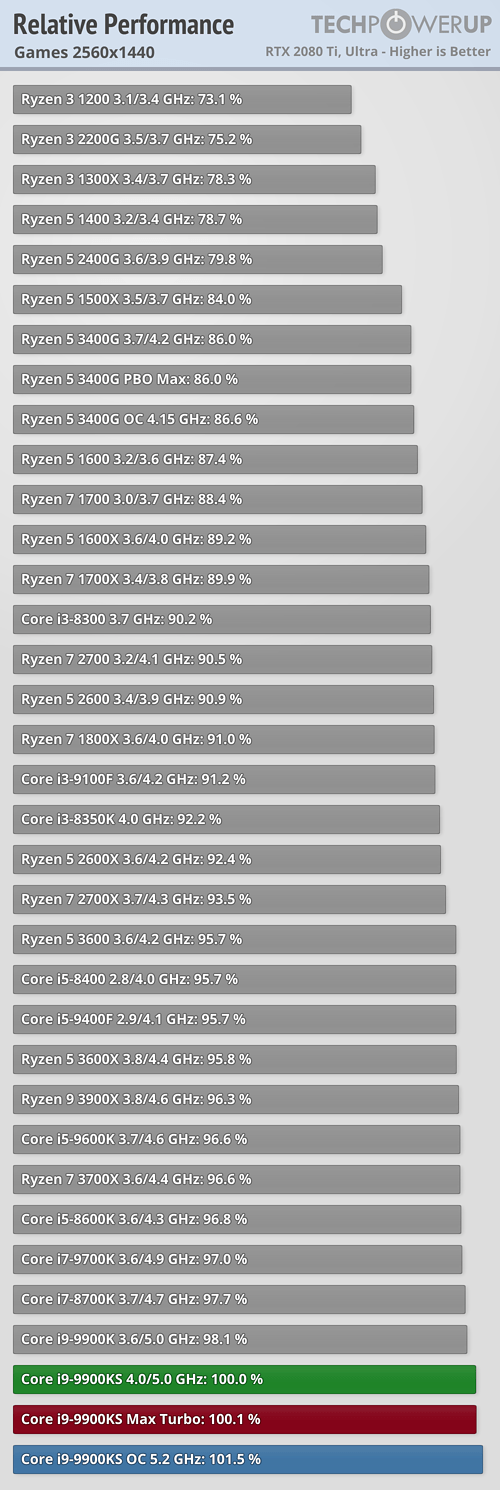UnknownSouljer
[H]F Junkie
- Joined
- Sep 24, 2001
- Messages
- 9,041
Most recently...
Intel still has the advantage in most games.
Yes. Intel has the advantage when games are 100% CPU bound. If that’s how you game with your 2080Ti’s then I guess it’s a better deal.
If you want to game at 4K and ultra settings instead of 1080p at medium or high settings you’re gonna get a massively different result.
![[H]ard|Forum](/styles/hardforum/xenforo/logo_dark.png)
